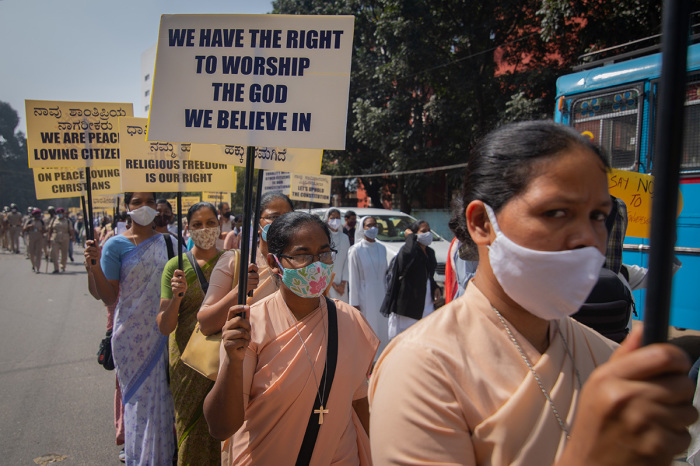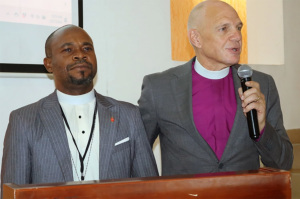Another Indian state passes anti-conversion bill targeting Christians

While India’s Christian minority continues to fear for its safety amid rising attacks, another state, Karnataka, has passed a controversial “anti-conversion” bill, which has routinely been used as a pretext for anti-Christian violence in several other states.
The southern Karnataka state’s upper house this week passed the “Karnataka Protection of Right to Freedom of Religion Bill,” alleging that “forced” religious conversions had become widespread in the state and were leading to mistrust among people, NDTV reported.
After the governor’s assent, the bill will immediately become law, although a separate anti-conversion ordinance issued in May has already been in effect.
The bill was passed days after the country's Supreme Court issued a directive to eight states, including Karnataka, to verify the claims of Christian groups that filed a petition for protection after around 200 attacks were reported within the first five months of 2022.
The court said verification was needed because the federal government had maintained that claims of Christian persecution in India are based on “half-baked and self-serving facts and self-serving articles and reports … based upon mere conjecture.”
Last month, the federal interior ministry response to a petition from Christian groups by saying: “There appears to be some hidden oblique agenda in filing such deceptive petitions, creating unrest throughout the country and perhaps for getting assistance from outside the country to meddle with internal affairs of our nation.”
While Christians comprise only 2.3% of India’s population and Hindus account for about 80%, nearly a dozen states in the country have enacted anti-conversion laws, claiming that Christians “force” or give money to Hindus to persuade them to convert to Christianity.
Anti-conversion laws typically state that no one can use the “threat” of “divine displeasure,” which means Christians can’t talk about Heaven or Hell since it would be seen as luring someone to convert.
Some of these laws have been in place for decades in some states. Radical Hindu nationalist groups frequently use these anti-conversion laws to make false charges against Christians and launch attacks under the pretext of an alleged forced conversion.
“The persecution of Christians in India is intensifying as Hindu extremists aim to cleanse the country of their presence and influence,” a fact sheet from watchdog group Open Doors USA states. “The driving force behind this is Hindutva, an ideology that disregards Indian Christians and other religious minorities as true Indians because they have allegiances that lie outside India, and asserts the country should be purified of their presence.”
“This is leading to a systemic, and often violent and carefully orchestrated, targeting of Christians and other religious minorities, including use of social media to spread disinformation and stir up hatred.”
The United Christian Forum reported at least 486 violent incidents of Christian persecution in 2021, calling it the “most violent year” in the country’s history.
UCF attributed the high incidence of Christian persecution to “impunity,” enabling mobs to “criminally threaten, physically assault people in prayer, before handing them over to the police on allegations of forcible conversions.”





























